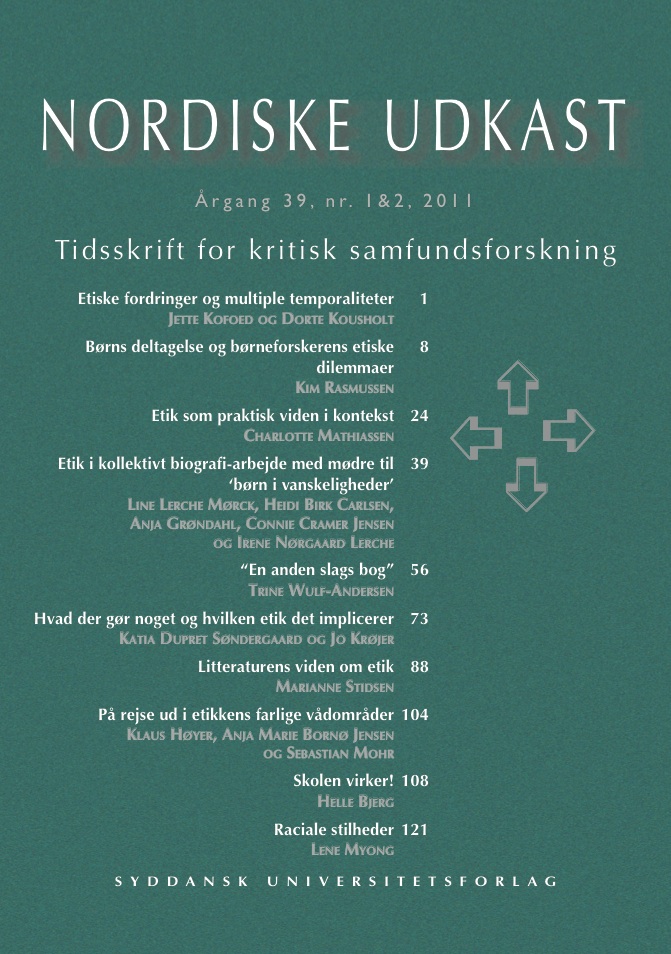School works
Three analytical perspective on desire to schooling in a historical perspective
DOI:
https://doi.org/10.7146/nu.v39i1.134478Keywords:
Subjectification, educational his- tory, 1950 – 2000, memory, Slavoj Zizek, desire, ideological fantasy, Brian Massumi, af-, fect, intensity, teacher authority, teacher-pupil relations, desire to learn, school life.Abstract
The article presents perspectives from a PhD- dissertation on pupil subjectification in a his- torical perspective. The overall focus is how school works through the schooling of desire in the lived life of school. Three distinct theo- retical frameworks are developed aiming at the qualitative analysis of school memories of three generations of pupils in Danish compul- sory school from 1950 – 2000. Firstly school as a space of memory is conceptualised in order to grasp the shifting temporalities and the rich sensitivities displayed in empirical material produced through focus group interviews on school memories. The analytical framework of school as an ideological space builds on the ideology critique of Slavoj Zizek in order to introduce the analysis of ideological fantasy and desire into the analysis of pupil-teacher relationships and teacher authority over time. School as an affective space uses the conceptu- alisation of affect and intensity by Brian Mas- sumi in order to analyze the schooling of the desire to learn and the cultivation of the pupil self in historically different pedagogical prac- tices. The article may be read as a contribution to the development of theoretical conceptuali- sations and analytical strategies aiming at the integration of feelings and fantasies, sensations and sensibilities into the analysis of how school works on and through the pupils.




